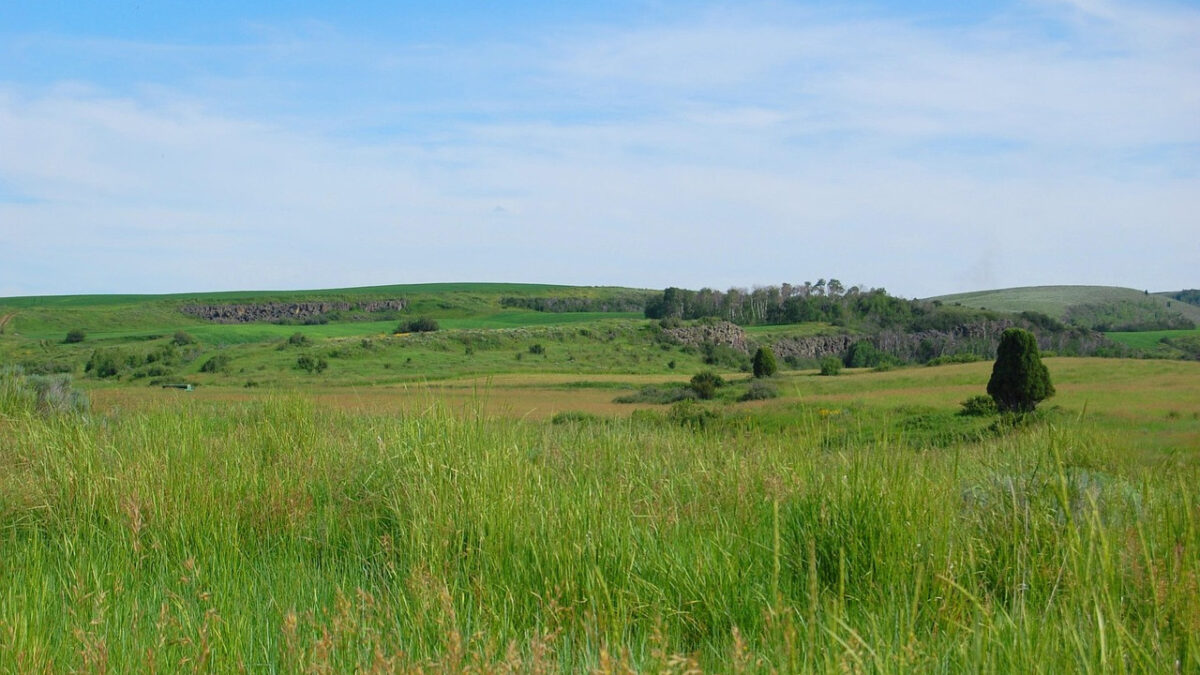In our great state of Idaho, God has graciously blessed us with the vast natural resources we need to be self-sufficient and prosperous, but we must have governance that allows us access to our resources.
After seven years in Congress, it is clear to me what does not work—depending on the federal government to wisely manage the lands within the borders of Idaho, and putting our trust in adversarial nations to provide necessary critical minerals and materials.
A case in point, wildfires scorched nearly one million acres across our beautiful Idaho in 2024, leading to an estimated $131 million loss in timber sales. This level of devastation not only puts significant financial strain on our local economies but also forces the federal government to step in with costly compensation programs like Payments in Lieu of Taxes (PILT). To make matters worse, our federal landlord currently has a growing $100+ billion backlog of unaddressed needs on our federally managed lands, ranging from forest management to wildfire prevention and infrastructure maintenance.
Now, in fairness to federal agencies, they are grossly overwhelmed with more responsibility than they have resources to handle, so they don’t. And when timber or mining projects do get identified and proposed, they are almost always cast into a seemingly endless loop of bureaucratic or legal challenges that are either due to government regulations or lawsuits filed by so-called environmental groups that are anything but. As a result, federally mismanaged land literally goes up in smoke every year, taking with it everything in its path. American industry is then left with having to pursue needed resources from foreign nations, oftentimes from places that have no regard for environmental renewability.
The answer is to encourage local resource management.
No one is better equipped or more incentivized to responsibly manage Idaho land than Idahoans. States, counties, municipalities, tribes, ranchers, and private operators are the solution. Changing the system to allow this to happen is the challenge, but I am pleased to communicate that President Trump also realizes this and is a willing partner for change. The goal is not privatization but better stewardship through local stakeholder involvement. I fully support public lands in public hands. What I do not support is Idaho’s lands in the hands of a D.C.-based landlord 3,000 miles away.
In Congress, we are making some progress, and I have good news for Idaho counties and Tribes. As part of the EXPLORE Act, which was signed into law earlier this year in conjunction with my bill, H.R. 8258, the Federal Interior Land Media (FILM) Act, the Good Neighbor Authority (GNA) program was expanded to allow counties and Tribes to participate in revenue sharing with the federal government on local forest projects—something only available to states until now. This is a legislative measure I have been fighting hard for and is key to how Idahoans, on the local level, will help improve forest health and mitigate wildfires. However, while this much-needed legislative reform is a step in the right direction, additional federal reforms are necessary, and we have a long way to go.
Now more than ever, encouraging local involvement to help manage Idaho’s expansive natural resources is critical. This is because I believe that eventually, a transition of land management to state and local entities is imminent. Midwestern and Eastern states are growing frustrated with subsidizing states like Idaho, with 62% of federal lands, through programs like Payments in Lieu of Taxes (PILT) and the Secure Rural Schools program (SRS). We need to be proactive, have a plan, and be the drivers of the process.
To do this, fellow Idahoans’ counsel and engagement are necessary as we embrace the opportunity to be wise stewards of the wealth of natural resources on our federal lands and beneath our feet.
Congressman Fulcher’s Congressional Committees, Caucuses and Groups
House Committee on Energy and Commerce
- Vice Chair of the Subcommittee on Commerce, Manufacturing, and Trade
- Subcommittee on Communications and Technology
- Subcommittee on Oversight and Investigations
House Committee on Natural Resources
- Subcommittee on Energy and Mineral Resources
- Subcommittee on Federal Lands
Congressional Caucuses and Groups
- Values Action Team (VAT)
- 2nd Amendment Caucus
- Fertilizer Caucus
- Working Forests Caucus
- House Energy Action Team (HEAT)
- Western Caucus
- Pro-Life Caucus
- House Freedom Caucus
- Republican Study Committee
- America 250 Caucus



One reply on “The Time to Encourage Local Land Management Is Now, Here’s Why”
The discovery of Gold is how Idaho was discovered and why it was established. In the past 4 years over 100 small-scale miners have been driven from their claims due to miss-management by the USFS. The constant badgering and overregulation has caused many to be driven from their legal income. The FS always plays with the land closure groups. I am President of Moose Creek Mining District. A petition with 112 signers was presented to me by a group of forest users to get help from government. TO date, NO improvements or changes. The roads are so bad a tow-truck responding to retrieve a vehicle that bounced off the road did also bounce off due to poor road conditions and up set into the Orogrand creek. I have talked to every elected official and have gained nothing. One senator just held a meeting with (Mining Companies) No independent miners. Small scale miners are who found all of the locations they have taken over. With out Gov grants of Perks.